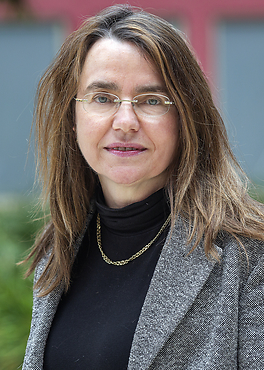Rostock Demographic Seminar Series
Reducing Ambiguities and Increasing Efficiency – Introducing (Semi-)Formal Approaches into Simulation Studies
Adelinde M. Uhrmacher
Hybrid Presentation, July 04, 2023
Adelinde Uhrmacher from the University of Rostock will talk about reducing ambiguity and increasing efficiency - introducing (semi-)formal approaches to simulation studies.
The talk starts at 3:15 pm (Berlin time).
Abstract
Modeling and simulation studies are knowledge and data-intensive processes in which various products are generated and refined. (Semi-)formal approaches allow a succinct representation of the diverse activities and products of a simulation study and relate those with each other. In addition, due to their clearly defined semantics, the information can be exploited by computational interpretation and inference processes.
For example, a formal domain-specific modeling language facilitates the interpretation and communication of a simulation model due to its concise and unambiguous representation. Based on the precise semantics, a model can be executed by different simulators ensuring an efficient execution in a specific situation. Approaches for specifying simulation experiments lend structure to these experiments, facilitate their specification and reuse, and may even further their automatic generation. Hypotheses, expressed in formal language, allow checking a simulation model automatically and fitting its parameters. The expectation regarding simulation results complements data traditionally used for validation and calibration. Suppose that how simulation studies shall be conducted is formally specified in terms of activities and products and their constraints. This information can guide the modeler, ensure adherence to specific standards in developing a simulation model, and automatically generate and document the steps of the study.
About the Speaker

© private
Adelinde M. Uhrmacher is a professor with the Institute for Visual and Analytic Computing at the University of Rostock and head of the Modeling and Simulation Group. She has been on the editorial boards of diverse simulation-related journals and conferences, e.g., editor in chief of SCS Simulation (2000-2006), and editor in chief of the ACM Transactions on Modeling and Computer Simulation since 2013. Her research focuses on the development of methods for multi-level modeling, simulation, and conducting simulation studies, and their application in areas such as cell biology, ecology, and demography.
Online Registration
If you wish to participate, please register online by sending a message to info@demogr.mpg.de. The talk starts at 3:15 pm (Berlin time).